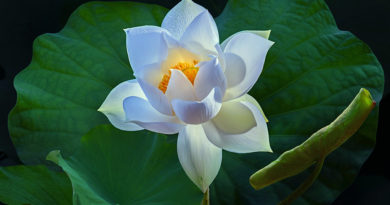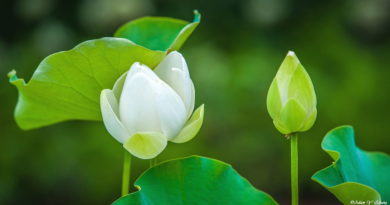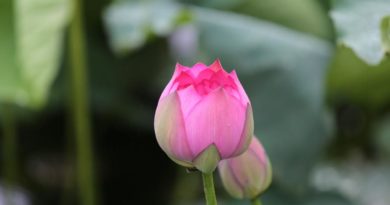3. Tika Nipāta 4. Devadūta Vaggo
Aṅguttara Nikāya
3. Tika Nipāta
4. Devadūta vaggo
1. Sabrahmakasuttaṃ –– With Brahma
31. Bhikkhus, those families in which the mother and father are worshipped by the children at home are with Brahma. Bhikkhus, they are the first instructions in the families, when the mother and father are worshipped by the children. Bhikkhus, those families in which the mother and father are worshipped by the children at home are adorable.
Bhikkhus, Brahma is a synonym for mother and father. The first teachers is a synonym for mother and father. Loved ones is another synonym for mother and father. Bhikkhus, mother and father do much for their children, when they cannot walk, they are fed and the world is shown to them by mother and father.
They should be revered with compassion and worshipped.
They should be supplied with eatables, drinks, clothes and beds.
Should rub them, bathe them and wash their feet
The wise rejoice attending on mother and father here
And they rejoice in heaven hereafter.
32. Then venerable Ānanda approached the Blessed One, worshipped sat on side and said thus to the Blessed One: Venerable sir, is there a kind of concentration, in which there does not arise latent tendencies of measuring as ‘I be’ and ‘it is to me’ in this sixfold conscious body, and externally on account of any signs. In which concentration, the mind is released and released through wisdom and in which one abides without the latent tendencies of measuring as ‘I be’ and ‘it is to me’?
Ānanda, there is such a concentration, in which there does not arise latent tendencies of measuring as ‘I be’ and ‘it is to me’ in this sixfold conscious body, and externally on account of any signs. In which concentration one abides, the mind released and released through wisdom, without the latent tendencies of measuring as ‘I be’ and ‘it is to me’ and one could abide in it.
Venerable sir, how is that concentration?
Ānanda, here, it occurs to the bhikkhu: This is peaceful, this is exalted, such as the appeasement of all determinations, giving up of all substratum, destruction of craving, non attachment, cessation and extinction. Ānanda, in this manner there is to the bhikkhu a concentration in which there does not arise latent tendencies of measuring as ‘I be’ and ‘it is to me’ in this sixfold conscious body, and externally on account of any signs. In this concentration, the mind is released and released through wisdom, one abides without the latent tendencies of measuring as ‘I be’ and ‘it is to me’ and in which one could abide.
Ānanda, it was on account of this, that I had answered thus to Punnaka in the Parayanavagga:
Is appeased, emancipated, without confusion and desires,
I say, he has crossed birth and decay.
33. Then venerable Sāriputta approached the Blessed One, worshipped and sat on a side. The Blessed One said to venerable Sāriputta: Sāriputta, I preach in short and in detail, I preach in short and detail too, those who understand it are rare.
O! Blessed One, O! Well gone One, this is the time to preach in short and in detail, the time to preach in short and detail too, there are those who understand it.
Therefore Sāriputta, you should train thus, in this sixfold conscious body, and externally on account of any signs, there will not be the latent tendencies of measuring as ‘I be’ and ‘it is to me’ That is the abiding in which the mind is released and the abiding, release through wisdom. Sāriputta, to one abiding in this, there are no latent tendencies of measuring as ‘I be’ and ‘it is to me.’ We will abide in that release of mind and release through wisdom. Sāriputta, you should train in this manner. Sāriputta, in this sixfold conscious body and externally on account of any signs, when there are no latent tendencies of measuring as ‘I be’ and ‘it is to me,’ that is the release of mind and the release through wisdom. Sāriputta, to this it is said the bhikkhu has cut up craving and removed the bonds, rightfully penetrated measuring and ended unpleasāntness.
Sāriputta, it is on account of this that I have answered to Udaya in this way.
Pulling out sloth and putting an end to doubts,
And purifying mindfulness with equanimity preceded by logical thinking
4. Nidānasuttaṃ
34. Bhikkhus, these three are the origins of action. What three? Greed is an origin of action, hate is an origin of action and delusion is an origin of action.
Bhikkhus, a greedy action born of greed, originating and arising from greed, in which the real self is born, gets cooked up. When it is cooked, that is the results of action that is felt either here and now, in the next birth or in a subsequent birth.
Bhikkhus, an angry action born of anger, originating and arising from anger, in which the real self is born, gets cooked up. When it is cooked, that is the results of action that is felt either here and now, in the next birth or in a subsequent birth
Bhikkhus, a deluded action born of delusion, originating and arising from delusion, in which the real self is born, gets cooked up. When it is cooked, that is the results of action that is felt either here and now, in the next birth or in a subsequent birth. Bhikkhus, just as some unbroken, not decayed seeds, not destroyed by the heat and sun when embedded at the right time, in a well prepared field and if the rain also falls, would germinate, grow and develop. In the same manner bhikkhus, a greedy action … re … is felt either here and now, in the next birth or in a subsequent birth. An angry action … re … is felt either here and now, in the next birth or in a subsequent birth A deluded action born of delusion, originating and arising from delusion, in which the real self is born, gets cooked up. When it is cooked, that is the results of action that is felt either here and now, in the next birth or in a subsequent birth.
Bhikkhus, these three are the origins of action.
Bhikkhus, these three are the origins of action. What three? Non greed is an origin of action, non anger is an origin of action and non delusion is an origin of action.
Bhikkhus, a non greedy action born of non greed, originating and arising from non greed, when greed disappears that action fades, it is uprooted, made a palm stump and made a thing that would not rise again.
Bhikkhus, a non angry action born of non anger, originating and arising from non anger, when anger disappears that action fades, it is uprooted, made a palm stump and made a thing that would not rise again.
Bhikkhus, a non deluded action, born of non delusion, originating and arising from non delusion, when delusion disappears that action fades, it is uprooted, made a palm stump and made a thing that would not rise again.
Bhikkhus, just as some unbroken not decayed seeds, not destroyed by the heat and sun are embedded at the right time, in a well prepared field A man comes along, burns those seeds turns them to ashes and blows the ashes in the air or puts them into a fast flowing river In the same manner bhikkhus, that non greedy action … re … would not rise again. that non angry action … re … would not rise again. That non deluded action born of non delusion, originating and arising from non delusion, when delusion disappears that action fades, it is uprooted, made a palm stump and made a thing that would not rise again.
The skilful feel here and now all actions large or small,
By nature greedy, hateful or deluded,
Do not leave them for another setting.
5. Hatthakasuttaṃ –– To prince Hatthaka.
35. I heard thus. At one time the Blessed One was abiding in Alavi on a cattle track seated on a spread of leaves in the Simsapa forest. Hatthaka of Alavaka walking and wandering for exercise saw the Blessed One seated on a spread of leaves in the Simsapa forest and approached, worshipped the Blessed One, sat on a side and said:
‘Sir, Blessed One did you sleep well?’
‘Yes, prince, I slept well, I’m one of those who sleep well in this world’
‘Sir, wintry nights are cold, it’s the time of snow fall, the ground, with cattle made ruts is rough, the spread of leaves is thin, snow falls through the trees, minus their leaves, the cold wind blows through the yellow robe clinging to the body, and yet the Blessed One says Yes, prince, I slept well, I’m one of those who sleep well in this world.’
‘Prince, I will question you on this and you may answer as it pleases you. To a householder or to a householder’s son there is a mansion, well painted, with closed windows and doors. In that mansion there are cushions of deer skin with coverings made of wool. Overhead too there is a covering made of antelope and deer skin and on the two sides red coverings. Inside a lamp is lighted and four wives attend on him doing his likes and dislikes. Prince, what do you think, would he sleep well there or what is it?’
‘Venerable sir, he would sleep well. Of those who sleep well in the world, he is one’.
‘Yet wouldn’t bodily or mental burnings born of greed assail this householder, or this householder’s son and on account of that, sleep badly?’
‘Yes, venerable sir.’
‘Prince, the wailing’s born of greed on account of which this householder, or this householder’s son would sleep badly are dispelled in the Thus Gone One, uprooted, made a palm stump that would not grow again. Therefore I sleep well
Yet wouldn’t bodily or mental burnings born of anger assail this householder, or this householder’s son and on account of that sleep badly?’
‘Yes, venerable sir.’
‘Prince, the wailing’s born of anger, on account of which this householder, or this householder’s son would sleep badly are dispelled in the Thus Gone One, uprooted, made a palm stump that would not grow again. Therefore I sleep well.’
Yet wouldn’t bodily or mental burnings born of delusion assail this householder, or this householder’s son and on account of that sleep badly?’
‘Yes, venerable sir.’
‘Prince, the wailing’s born of delusion on account of which this householder, or this householder’s son would sleep badly are dispelled in the Thus Gone One, uprooted, made a palm stump that would not grow again. Therefore I sleep well’
Not soiled by sensuality, he is cooled and without substratum,
Putting an end to all troublesome states, he ends pain,
Those that have appeased their minds, sleep well.
36. Bhikkhus, these three are the celestial messengers. What three? Here bhikkhus, a certain one misconducts himself by body, verbally and mentally and after death is born in decrease, in a bad state in hell. The warders of hell take him by his limbs and show him to their king and tell him: Lord, this one did not care for his mother, father, recluses, ones leading the holy life or his elders, mete him punishment.
The king of the under world cross questions him, asks for reasons and converses with him: ‘Good man did you not see the first celestial messenger appearing among humans?’
‘Sir, I did not see.’ The king of the under world, then asks him thus: ‘Good man did you not see among humans a woman or a man, eighty, ninety or a hundred years old, bent like the framework of a roof, going supported on a stick and shivering, sick, his youthfulness gone, teeth broken and hair turned grey and most of it gone and with wrinkles on the body?’
Then he says. ‘I saw sir.’
Then the king of the under world asks him. ‘Good man, you being an intelligent man grown old, didn’t it occur to you, I too have not gone beyond decay, therefore I should do good by body, words and mind?’
Then he says. ‘Sir, I could not do owing to my negligence.’
The king of the under world says to him: ‘On account of negligence you did not do the right, by body, speech and mind. That demerit was not done by mother, father, brother, sister, friends, associates, blood relations, by gods, recluses or brahmins. It was done by you and you will experience its results in return.
The king of the under world then cross questions him, asks for reasons and converses with him about the second messenger: ‘Good man, did you not see the second celestial messenger appearing among humans?’
‘Sir, I did not see.’ The king of the under world, then asks him thus: ‘Good man did you not see among humans a woman or man, gravely ill feeling unpleasant sunk in his own urine and excreta, raised and placed on his bed by others?’
Then he says. ‘I saw sir.’
Then the king of the under world asks him. ‘Good man, you being an intelligent man grown old, didn’t it occur to you, I too have not gone beyond illness, therefore I should do good by body, words and mind?’
Then he says. ‘Sir, I could not do owing to my negligence.’
The king of the under world says to him: ‘On account of negligence you did not do the right, by body, speech and mind. That demerit was not done by mother, father, brother, sister, friends, associates, blood relations, by gods, recluses or brahmins. It was done by you and you will experience its results in return.
The king of the under world cross questions him, asks for reasons and converses with him about the third celestial messenger: ‘Good man did you not see the third celestial messenger appearing among humans?’
‘Sir, I did not see.’ The king of the under world, then asks him thus: ‘Good man did you not see among humans a woman or man dead, one day, two days, three days, or blue, bloated and festering?’
Then he says. ‘I saw sir.’
Then the king of the under world asks him. ‘Good man, you being an intelligent man grown old, didn’t it occur to you, I too have not gone beyond death, therefore I should do good by body, words and mind?’
Then he says. ‘Sir, I could not do owing to my negligence.’
The king of the under world says to him: ‘On account of negligence you did not do the right, by body, speech and mind. That demerit was not done by mother, father, brother, sister, friends, associates, blood relations, by gods, recluses or brahmins. It was done by you and you will experience its results in return.
The king of the under world having cross questioned, asked for reasons and conversed with him about the celestial messenger becomes silent.
Then the warders of hell give him the fivefold punishment. They fix a burning iron peg to each of his hands, and two others to each of his feet and another piercing his chest. On account of it he feels sharp, rough unpleasant feelings, but does not die until the results of that evil action gets exhausted.
Then the warders of hell lead him and cut him with a knife and he feels sharp, rough unpleasant feelings, but does not die, until the results of that evil action gets exhausted.
Then the warders of hell hang him head downwards and work on him with a hatchet, he feels sharp, rough unpleasant feelings, but does not die until the results of that evil action gets exhausted.
Then the warders of hell tie him to a cart and make him run to and fro on a ground that is ablaze with fire, he feels sharp, rough unpleasant feelings, but does not die until the results of that evil action gets exhausted.
Then the warders of hell make him climb up and come down a lofty rock which is blazing with fire, he feels sharp, rough unpleasant feelings, but does not die until the results of that evil action gets exhausted.
The warders of hell then take him by his feet and throw him to a boiling molten pot. He gets boiled in its foam, while getting boiled he sometimes dives into it and comes out of it, swims across it. On account of it he feels sharp, rough unpleasant feelings, but does not die until the results of that evil action gets exhausted.
The warders of hell then put him in the great hell. It is thus:
All round is an iron wall and an iron roof on top
Its iron floor is burning all the time
It spread for seven hundred miles and stands there all the time.
I should have a chance to associate him and hear the Teaching and I should know that Teaching.
Bhikkhus, these words are not another recluse’s or brahmin’s words, I myself knowing seeing and experiencing them, say them.
If they be negligent, they decrease and fall to unpleasantness for a long time.
Great Men appeased by the celestial messengers do not become negligent
They see fear in clinging to birth, death and being
And destroying these, seek release without holding
They are the appeased and pleasant, extinguished here and now
Gone beyond animosity, fear and all unpleasāntness.
37. Bhikkhus, on the eighth day of the waxing moon, the ministers and members of the gathering of the four guardian gods wander about to see whether many humans care for mother, father, recluses, brahmins, elders in the family or observe the eight precepts on the full moon day and keep awake doing merit.
Bhikkhus, on the fourteenth day of the waxing moon, the sons of the four guardian gods wander about to see whether many humans care for mother, father, recluses, brahmins, elders in the family or observe the eight precepts on the full moon day and keep awake doing merit
Bhikkhus, on the full moon day the fifteenth day of the waxing moon, the four guardian gods themselves wander about to see whether many humans care for mother, father, recluses, brahmins, elders in the family or observe the eight precepts on the full moon day and keep awake doing merit.
Bhikkhus, if it be only a few humans that care for mother, father, recluses, brahmins, elders in the family or observe the eight precepts on the full moon day, at the assembly of the thirty-three gods in the Suddhamma hall the four guardian gods inform Sakka: ‘Sirs, only a few care for mother, father, recluses, brahmins, elders in the family and a few observe the eight precepts on the full moon day and keep awake doing merit. Bhikkhus, hearing this the thirty-three gods become distressed thinking the celestial body is waning and the body of demons is waxing
Bhikkhus, if it be that many humans care for mother, father, recluses, brahmins, elders in the family or observe the eight precepts on the full moon day, at the assembly of the thirty-three gods in the Suddhamma hall, the four guardian gods inform Sakka: ‘Sirs, many care for mother, father, recluses, brahmins, elders in the family and many observe the eight precepts on the full moon day and keep awake doing merit. Bhikkhus, hearing this the thirty-three gods become happy thinking the celestial body is waxing and the body of demons is waning
8. Dutiyacatumahārājasuttaṃ
38. Bhikkhus, Sakka the king of gods, once acquainted the thirty-three gods thus:
On the waxing side of the moon, and look at humans like me.
On the waxing side of the moon, and look at humans like me.
9. Sukumālasuttaṃ –– Delicately nurtured.
39. Bhikkhus, I was very delicately nurtured. In my father’s home there was a pond for blue lotuses, another for red lotuses and one other for white lotuses and all of them for my sake. I never used sandle other than from Benares. My head dress, close fitting jacket, garment and the outer robe were all from Benares cloth. A white parasol was held over me day and night, with the intention, may cold, heat, dust, grass or dew drops not touch him. There were three mansions for me, one for winter, one for summer and the other for the rains. Bhikkhus, the four months of the rainy season I spent in the mansion for the rainy season, without men, attended with music not ascending from that mansion. Unlike in other households where the servants and workmen are served a second preparation, in my father’s home the fine rice and the soups are served.
Bhikkhus, to me so carefully arranged and delicately nurtured it occurred: The not learned man a subject of decay seeing another decayed, loathes and feels disgust, does not think it would be the same to me. It occurred to me, I am a subject of decay I have not gone beyond it. If seeing a decayed person I feel disgust and loathe him, it is not suitable for me. When I reflected thus, all my intoxications of youth faded.
The not learned man a subject of illness seeing a another sick, loathes and feels disgust, does not think it would be the same to me. It occurred to me, I am a subject of illness I have not gone beyond it. If seeing a sick person I feel disgust and loathe him, it is not suitable for me. When I reflected thus, all my intoxications of health faded.
The not learned man a subject of death seeing another dead, loathes and feels disgust, does not think it would be the same to me. It occurred to me, I am a subject of death I have not gone beyond it. If seeing a dead person I feel disgust and loathe him, it is not suitable for me. When I reflected thus, all my intoxications of life faded.
Bhikkhus, these three are the intoxications. What three? The intoxication of youth, of health and of life. Bhikkhus, the not learned man intoxicated by youth misbehaves by body, speech and mind and on account of that misbehaviour after death goes to decrease, to an evil state, is born in hell. Bhikkhus, the not learned man intoxicated by health misbehaves by body, speech and mind and on account of that misbehaviour after death goes to decrease, to an evil state, is born in hell. Bhikkhus, the not learned man intoxicated by life misbehaves by body, speech and mind and on account of that misbehaviour after death goes to decrease, to an evil state, is born in hell.
Bhikkhus, on account of the intoxication of youth, the intoxication of health, or the intoxication of life a bhikkhu would give up the training and come to the lower level.
Illness, decay, and death the peaceful, natural things of life, the ordinary folk loathe
Seeing the appeasement in giving up, I destroy all intoxicants
May I pick courage to realize extinction
Now I cannot enjoy sensual pleasures. I will go to the end of the holy life.
40. Bhikkhus, these three are the authorities. What three? Authority over oneself, authority over the world and authority over the Teaching.
Bhikkhus, what is authority over oneself? Here, bhikkhus, the bhikkhu goes to the forest, to the root of a tree or to an empty house and reflects: I did not put on robes and become homeless for want of robes, morsel food, dwellings or for want of this and other thing. I am beset by birth, decay, death, grief, lament, unpleasantness, displeasure and distress. The ending of this mass of unpleasantness completely is rare. I gave up sensuality and became homeless, now if I go in search of sensuality, it is evil. It is not suitable for one like me.
Then he reflects thus: Unshaken effort will be aroused, non confused mindfulness will be established, my body is appeased without any aversion, my mind is concentrated and in one point. He makes himself the authority and dispels demerit, develops merit, dispels the faults and develops the non faulty. He purifies himself. This is authority over oneself. Bhikkhus, what is authority over the world? Here, bhikkhus, the bhikkhu goes to the forest, to the root of a tree or to an empty house and reflects: I did not put on robes and become homeless for want of robes, morsel food, dwellings or for want of this and other thing. I am beset by birth, decay, death, grief, lament, unpleasantness, displeasure and distress. The ending of this mass of unpleasantness completely is rare. If I having become homeless, think sensual thoughts, angry thoughts or hurting thoughts, in this huge society there may be very powerful recluses and brahmins who have the divine eye, who would know the minds of others. They might see me from a distance and standing close they may not be seen. They will know me thus: Look at this clansman’s son out of faith he went forth and became homeless, he lives thinking evil demeritorious thoughts. There are powerful gods too who have divine eyes and know the minds of others. They see from a distance and even in proximity I do not see them. They will know my mind They will know me thus: Look at this clansman’s son out of faith he went forth and became homeless, he lives thinking evil demeritorious thoughts.
Then he reflects thus: Unshaken effort will be aroused, non confused mindfulness will be established, my body is appeased without any aversion, my mind is concentrated and in one point. He makes the world the authority and dispels demerit, develops merit, dispels the faults and develops the non faulty. He purifies himself. This is authority over the world.
Bhikkhus, what is authority over the Teaching? Here, bhikkhus, the bhikkhu goes to the forest, to the root of a tree or to an empty house and reflects: I did not put on robes and become homeless for want of robes, morsel food, dwellings or for want of this and other thing. I am beset by birth, decay, death, grief, lament, unpleasantness, displeasure and distress. The ending of this mass of unpleasantness completely is rare. The Teaching of the Blessed One is well proclaimed, here and now, the time does not matter, it invites to inspection, leads inwards, it’s to be realized by the wise by themselves. There are my co-associates who abide knowing and seeing. If I gone forth in this well proclaimed dispensation, abide lazily and negligently, it is not suitable for one like me.
Then he reflects thus: Unshaken effort will be aroused, non confused mindfulness will be established, my body is appeased without any aversion, my mind is concentrated and in one point. He makes the Teaching his authority and dispels demerit, develops merit, dispels the faults and develops the non faulty. He purifies himself. This is authority over the Teaching.
Bhikkhus, these are the three authorities.
Friend, the good is the eyewitness, the self is slight,
When the self is appeased, evil has no place.
The Thus Gone Ones and the gods, see the foolish misbehaving.
Therefore becoming an authority to yourself be mindful.
Becoming an authority of the world, concentrate to be clever,
Be an authority of the Teaching, live according to the Teaching,
Do not give up the search, confronted by death realize,
The destruction of birth with effort
Such a knower of the worlds does not make anything his own.
1. The release which is knowing. ‘aññāvimokkhaṃ’ . This is one of the releases declared by the Blessed One. It amounts to complete control of the six doors of mental contact. Such a person does not change, the least on account of data from any of the doors of mental contact. He enjoys a pleasantness that is rare here and now. [Go back]







